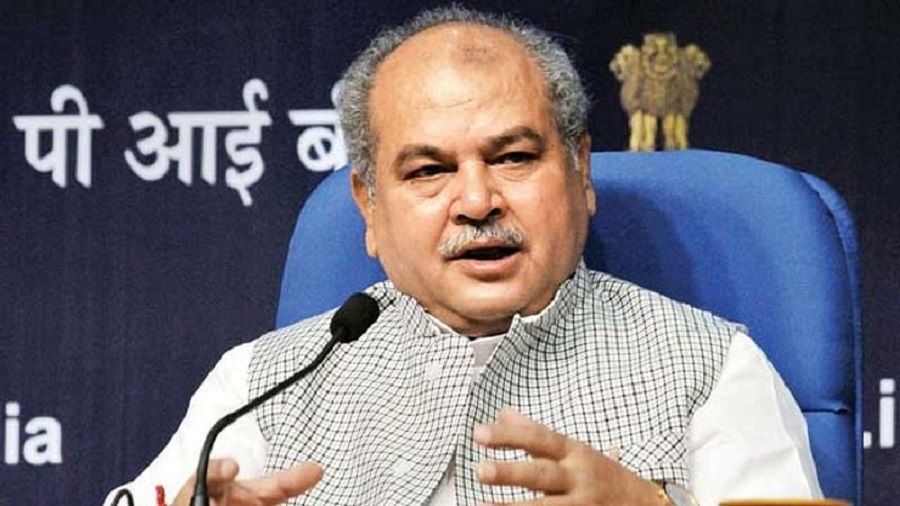

NEW DELHI:
It is indeed a matter of pride that India has doubled its horticulture production and has marched from scarcity to abundance in the last few years, said Narendra Singh Tomar, Union Minister for Agriculture & Farmers Welfare.
He added that by adopting best practices and by sharing it with the world we have not only improved in the production of fruits and vegetables but also have become the torch bearers for a sustainable and better future. Fruits and vegetables are the boons of nature often referred to as protective foods and it is very essential to increase its consumption for good health. He was addressing the National conference, organized by Ministry of Agriculture and Farmers Welfare in collaboration with FAO to celebrate “International Year of Fruits and Vegetables 2021” declared by the UN in collaboration with the Food and Agriculture Organization of the United Nations.
Tomar said that India is the second largest producer of horticulture crops and produces around 12 percentage of the global fruit- vegetable production. To globally promote popular exotic and important indigenous fruit crops in the country, the Ministry has identified 10 globally popular exotic fruit crops of commercial importance and 10 important indigenous fruit crops with high nutritional and nutraceutical properties. The State Horticulture Departments are also given targets for the year 2021-22 regarding area expansion for these crops.
During the current year, 8951 hectares area for exotic fruits and 7154 hectares area for indigenous fruits will be brought under cultivation. Tomar said that programmes have been started for cluster development based on the global significance of horticultural crops. The government has initiated an Agri infra fund for one Lakh crore rupees for financing the development of infrastructure in the villages and areas nearby the fields, supply chain services, e- marketing platforms, storage houses, pack houses, grading units, packing units, cold chain, primary processing centers and collection points for related logistic facilities.
Tomar said that our active role in public-private participation has helped in improving the post harvest infrastructure as we are working with new emerging players and agriculture start ups. He stated, that “PM Shri Narendra Modi has said that in 21st century India needs post-harvest food processing revolution and value addition amid increased agricultural production. Today we should focus on processing in every sector of agriculture, each food, each vegetables, fruits, pisciculture and all. Farmers should get modern storage facilities near their village”.
Union Minister Tomar said that in the recent past, few mile stones were achieved through the partnerships wide start-ups, value chain leaders, farmers or research institutes initiated by our Prime Minister. The Minister expressed hope that India could be able to make available fruits and vegetables even to poorest of the poor, not as a special food but as part of their daily diet.. He expressed his gratitude for commemorating the year 2021 as International Year of Fruits and
Vegetables.
Sanjay Agarwal, Secretary, Department of Agriculture & Farmers Welfare, Government of India said that horticulture has become the growth engine of Indian Agriculture. He further stated that “International Year of Fruits and Vegetables”, is an attempt of the UN to raise awareness on the importance of fruits and vegetables and the conference is aiming to pay attention to the national and international level. It is the need of the hour to act together to achieve the goal.
Tomio Shichiri, FAO Representative in India addressed the gathering. Garth Atkinson, International Expert made a presentation on “Global shift in Horticulture Supply Chain”. Rajbir Singh, Joint Secretary (MIDH), presented an overview of the horticulture sector in the country. Dr. A.K.Singh, Deputy Director General , Indian Council for Agricultural Research was present during the occasion.
The Conference was attended by senior officers of the Ministry of Agriculture and Farmers Welfare, Government of India, senior officers of Embassy of Israel, Embassy of the Netherlands, Green Innovation Centre, GIZ, officers from National Horticulture Board, Coconut Development Board, ICAR Institutes and all State Horticulture Missions. Operational guidelines for the Horticulture Cluster Development Programme and QR code of the guidelines were also released during the ocassion.
more recommended stories
BANGALORE: Amazon India today announced a.
ആലപ്പുഴ: ദേശീയ ക്ഷീരദിനത്തിന്റെ ഭാഗമായുള്ള പ്രത്യേക പരിപാടികളുടെ.
ALAPPUZHA: Milma’s Central Products Dairy in.
RAJASTHAN: Shree Foundation Trust, the social.
JHARKHAND:ACC, the cement and building material.
KOPPAL: In a landmark move to.
JHARKHAND: ACC, the cement and building.
CHANDIGARH: Ambuja Cements, the cement and.
THIRUVANANTHAPURAM: Kerala Co-operative Milk Marketing Federation.
CHENNAI: In the face of growing.